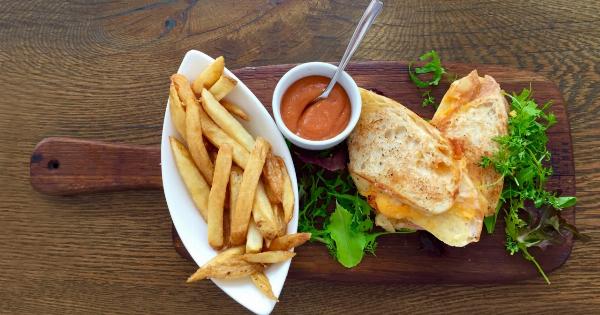We all know that exercise is good for our health, but did you know that it might also help you curb those cravings for junk food? A recent study by the University of Western Australia found that exercise can reduce cravings for high-calorie, unhealthy snacks.
The Study
The study consisted of 78 overweight adults who reported eating junk food regularly. Half of the participants were assigned a 12-week exercise program, while the other half were not asked to change their exercise habits.
During the study, participants were asked to report instances of junk food cravings and how intense those cravings were.
The results of the study found that those who exercised regularly reported fewer and less intense cravings for junk food. The participants who did not exercise showed no significant change in their cravings for unhealthy snacks.
Why Does Exercise Reduce Cravings?
Researchers believe that exercise may reduce cravings for junk food by affecting the reward center of the brain. When we eat high-calorie, unhealthy foods, our brains release dopamine, a feel-good neurotransmitter.
Over time, this can lead to a dependence on these unhealthy foods, as our brains associate them with pleasure.
Regular exercise has been shown to increase dopamine levels in the brain, which may reduce the need for unhealthy snacks to produce the same amount of dopamine.
Additionally, exercise has been shown to improve self-control, which may make it easier to resist the urge to indulge in unhealthy snacks.
Tips for Using Exercise to Reduce Cravings
If you’re looking to use exercise to reduce your cravings for junk food, there are a few things you can do to make the most of your workouts.
First, try to find a type of exercise that you enjoy. Whether it’s running, yoga, or weightlifting, finding an activity that you look forward to can make it easier to stick to a regular exercise routine.
Second, try to schedule your workouts for times when you’re most likely to experience cravings for junk food. For example, if you tend to crave snacks in the evening, try to schedule your workouts for after dinner.
Finally, try to make exercise a regular part of your routine.
While the participants in the study exercised for 12 weeks, it’s important to remember that the longer you stick with a regular exercise routine, the greater the potential benefits for reducing cravings for junk food.
Conclusion
The study by the University of Western Australia provides further evidence that exercise can have a positive impact on our health.
In addition to reducing the risk of chronic diseases, regular exercise may help us to resist the urge to indulge in unhealthy snacks. By finding a type of exercise that we enjoy and making it a regular part of our routines, we can reap the benefits of reduced cravings and improved overall health.


























